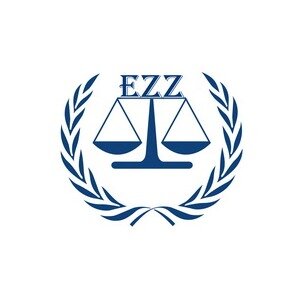Best Real Estate Due Diligence Lawyers in Abu Dhabi
Share your needs with us, get contacted by law firms.
Free. Takes 2 min.
Free Guide to Hiring a Real Estate Lawyer
List of the best lawyers in Abu Dhabi, United Arab Emirates

The Black Robe For Legal Consultancy & Debit Collection
1 hour Free ConsultationAbout Real Estate Due Diligence Law in Abu Dhabi, United Arab Emirates
Real Estate Due Diligence in Abu Dhabi, United Arab Emirates (UAE) is a comprehensive process aimed at ensuring that a potential property investment is sound, both legally and financially. This involves a thorough investigation into all facets of the property in question, from its legal status, property rights, obligations and liabilities, to physical condition, location, environment and market value. The law regarding Real Estate Due Diligence in Abu Dhabi is designed to protect both buyers and sellers from fraud and financial loss.
Why You May Need a Lawyer
A lawyer specializing in Real Estate Due Diligence can assist in reviewing and understanding property contracts, acquiring relevant documents, analyzing the risk aspects of the property, ensuring that all legal obligations are met, and safeguarding clients from potential fraud. They can also guide you through any issues that may arise, such as disputes over boundaries, usage restrictions, hidden owner liabilities, or property title concerns. It is beneficial to have legal advice in such circumstances given the complex nature of UAE’s property law and the high stakes involved in real estate transactions.
Local Laws Overview
The UAE Property Law, particularly Law No. 3 of 2015 on the regulation of property rights and its amendments, governs Real Estate Due Diligence. The law stipulates that all transactions relating to property rights must be registered with the Department of Land and Real Estate Affairs in Abu Dhabi. Any unregistered agreement is not recognized and does not confer any legal rights. Moreover, developers must acquire licenses for property development, real estate brokers must be registered, and off-plan property sales must be conducted under strict regulations. The law also provides robust protections for property investors, setting out clear obligations and responsibilities for developers.
Frequently Asked Questions
1. Can a foreigner purchase property in Abu Dhabi?
Yes, as per Law No. 13 of 2019, foreign nationals can now own freehold properties in Abu Dhabi's investment zones.
2. Do I need to register my property purchase with a government body?
Yes, all property purchases should be registered with the Department of Land and Real Estate Affairs in Abu Dhabi to be legally recognized.
3. Does the law protect the interests of off-plan property buyers in Abu Dhabi?
Yes, the law includes strict provisions to protect the rights of off-plan property buyers, including requiring developers to provide a financial guarantee for the completion of the project.
4. What is a real estate broker's role in Abu Dhabi?
Real estate brokers facilitate transactions between property buyers and sellers, their responsibilities involve advising clients about market conditions, prices, mortgages, legal requirements and related matters.
5. What legal issues could arise in a real estate transaction?
Potential disputes may arise over property boundaries, title ownership, quality or suitability of property for particular use, zoning restrictions and inspection issues.
6. How long does the due diligence process typically take?
The due diligence process can take anywhere between a few weeks to several months, depending on the property's complexity, the seller's responsiveness, and the legal framework's specifics.
7. Can a buyer initiate legal action if the property does not meet agreed standards?
Yes, a buyer can initiate legal actions if they find any discrepancy in the property after the sale, which contradicts the disclosures made by the seller during due diligence.
8. What should be specifically checked during the Due Diligence process?
The buyer should confirm the property's title, ensure there are no outstanding debts, check the permit status, verify the property's boundaries, and assess its physical condition.
9. What happens if there are property debts not disclosed during the due diligence process?
If there are undisclosed debts, the new owner might be liable for them, thus confirming the necessity of thorough due diligence.
10. What if the property is under mortgage?
If the property is mortgaged, the buyer must ensure that the bank consents to transfer the property’s title to them, and that the terms of the mortgage are clear and acceptable.
Additional Resources
The Department of Land and Real Estate Affairs in Abu Dhabi is the primary body that governs all matters related to property transactions. It offers a wealth of resources, services, and information related to real estate law, transactions, disputes, and registration. The Abu Dhabi Municipality also provides resources related to building permits and zoning regulations.
Next Steps
If you require legal assistance in Real Estate Due Diligence, start by seeking a consultation with a lawyer specializing in this field. They should be able to guide you through the necessary steps for your specific situation, assist with documentation, offer legal counsel during negotiations and help to escalate any legal matters should the need arise.
Lawzana helps you find the best lawyers and law firms in Abu Dhabi through a curated and pre-screened list of qualified legal professionals. Our platform offers rankings and detailed profiles of attorneys and law firms, allowing you to compare based on practice areas, including Real Estate Due Diligence, experience, and client feedback.
Each profile includes a description of the firm's areas of practice, client reviews, team members and partners, year of establishment, spoken languages, office locations, contact information, social media presence, and any published articles or resources. Most firms on our platform speak English and are experienced in both local and international legal matters.
Get a quote from top-rated law firms in Abu Dhabi, United Arab Emirates — quickly, securely, and without unnecessary hassle.
Disclaimer:
The information provided on this page is for general informational purposes only and does not constitute legal advice. While we strive to ensure the accuracy and relevance of the content, legal information may change over time, and interpretations of the law can vary. You should always consult with a qualified legal professional for advice specific to your situation.
We disclaim all liability for actions taken or not taken based on the content of this page. If you believe any information is incorrect or outdated, please contact us, and we will review and update it where appropriate.












